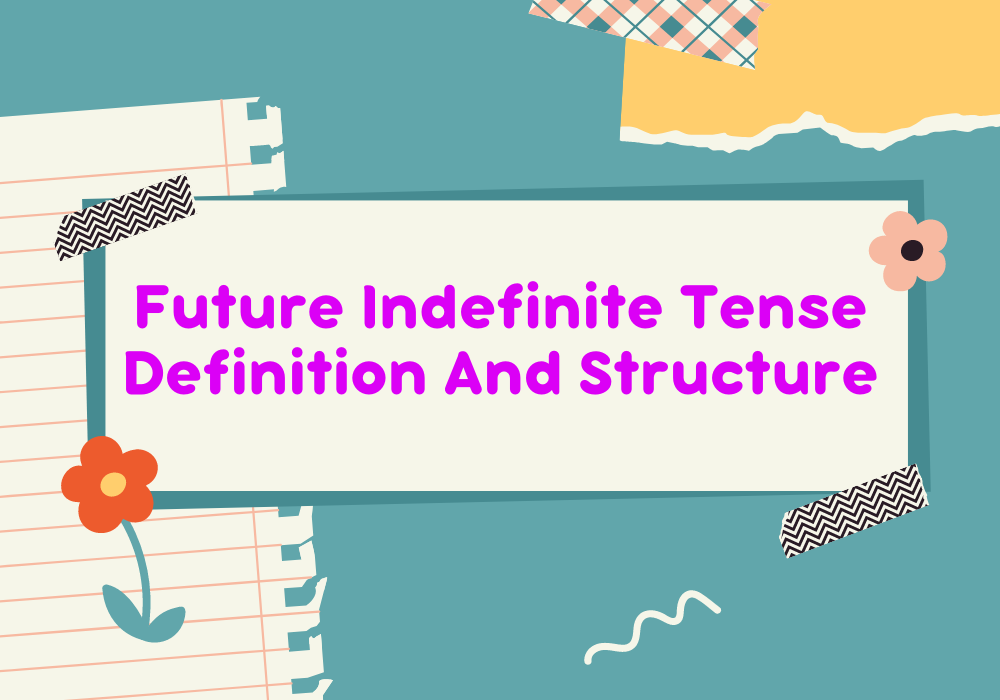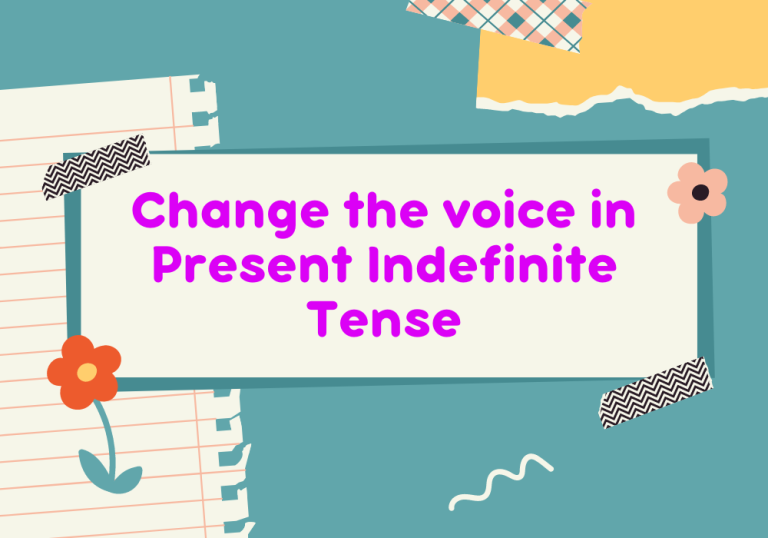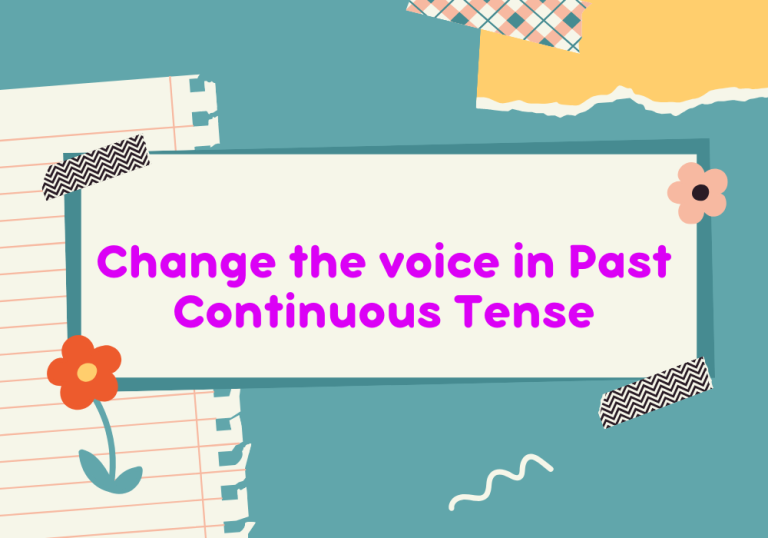The Future Indefinite Tense defines the action which has not occurred yet but will occur in the future. It also expresses future plans, determination, offer, prediction etc.
There are two components of verbs in this tense:
- Future form of auxiliary verb (shall/will)
- It is used with all subjects (I, you, he, she, it, we and they) to express future predictions, intentions or promises.
- “Shall” is used less frequently in modern English and is typically associated with formal or legal contexts.
- It is used with the subjects “I” and “we” to indicate future actions and make suggestions, offers or requests.
Structure 1:
Positive Form
Subject + shall/will + Present form of verb + Remaining Part of the sentence (If have).
Example: He will visit there tomorrow.
To compare the two sentences according to the structure,
Subject= He
shall/will + Present Form of Verb = will visit
Remaining Part of the sentence= there tomorrow.
Structure 2:
Negative Form
Subject + (shall/will) not + Present form of verb + Remaining Part of the sentence (If have).
Example: He will not do this task.
To compare the two sentences according to the structure,
Subject= He
shall/will not + Present Form of Verb = will not do
Remaining Part of the sentence= do this task.
Structure 3:
Question Form (Yes/No Question)
Shall/Will/Shall not/Will not + Subject + Present form of Verb + Remaining Part of the sentence (If have)?
Example 1: Will Akbar finish the work tomorrow?
To compare the sentence according to the structure,
Shall/Will = Will
Subject + Present Form of Verb = Akbar finish
Remaining Part of the sentence= the work tomorrow?
Example 2: Will not I finish this work?
To compare the sentence according to the structure,
Shall not/Will not= Will not
Subject + Present Form of Verb = I finish
Remaining Part of the sentence= this work?
Structure 4 :
Question Form (Wh Question)
Wh Word ( What/Who/How/Which etc.)+ shall/will/shall not/will not + Subject + Present form of Verb + Remaining Part of the sentence (If have)?
Example 1: Why will you go there?
To compare the sentence according to the structure,
Wh word (What/Who/How/Which etc.) = Why
shall/will = will
Subject + Present Form of Verb = you go
Remaining Part of the sentence= there?
Example 2: What will not they allow it?
To compare the sentence according to the structure,
Wh word (What/Who/How/Which etc.) = What
shall not/will not = will not
Subject + Present Form of Verb = they allow
Remaining Part of the sentence= it?
Structure 5 :
Question Form (Wh Question)
Wh Word ( What/Who/How/Which etc.) + shall/will/shall not/will not + Present form of verb + Remaining Part of the sentence (If have)?
Example 1: Who will perform this?
To compare the sentence according to the structure,
Wh word (What/Who/How/Which etc.) = Who
shall/will + Present form of verb = will perform
Remaining Part of the sentence= this?
Example 2: Who will not allow it?
To compare the sentence according to the structure,
Wh word (What/Who/How/Which etc.) = Who
(shall/will) not + Present form of verb = will not allow
Remaining Part of the sentence= it?
Structure 6:
Question Form (Wh Question)
Wh Word ( What/Who/How/Which etc.)+ Noun + shall/will/shall not/will not + Subject + Present form of Verb + Remaining Part of the sentence (if have)?
Example 1: Which books will you want?
To compare the sentence according to the structure,
Wh word (What/Who/How/Which etc.) + Noun = Which books
shall/will = will
Subject + Present Form of Verb = you want?
Remaining Part of the sentence= the following sentence has no remaining part.
Example 2: Which pen will not you find in the classroom?
To compare the sentence according to the structure,
Wh word (What/Who/How/Which etc.) + noun = Which pen
Will not= will not
Subject + Present Form of Verb = you find
Remaining Part of the sentence= in the classroom?
Structure 7:
Question Form (Wh Question)
Wh Word ( What/Who/How/Which etc.)+ Noun + Preposition + Noun + shall/will/shall not/will not + Subject + Present form of Verb + Remaining Part of the sentence (if have)?
Example 1: What kinds of birds will you like to see?
To compare the sentence according to the structure,
Wh word (What/Who/How/Which etc.) + Noun + Preposition + Noun = Which kinds of birds
shall/will = will
Subject + Present Form of Verb = you like
Remaining Part of the sentence= to see?
Example 2: Which types of products will not you find in the shop?
To compare the sentence according to the structure,
Wh word (What/Who/How/Which etc.) + noun + preposition + noun = Which types of products
shall not/will not = will not
Subject + Present Form of Verb = you find
Remaining Part of the sentence= in the shop?
It’s essential to understand that while the future indefinite tense indicates an action that will happen in the future, it does not provide details about when or how the action will occur. Therefore, context and additional information are often needed to fully understand the meaning of the sentence.



